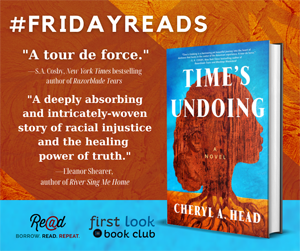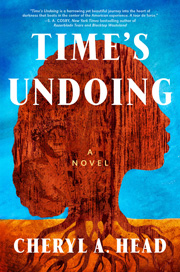
| Mon
Tue
Wed
Thu
Fri
Subscribe
| |||
Dear Reader, What's in a name? Well for me, when I was 23, it meant a new beginning in my life. When I was born my parents named me Susan and that's what everyone called me when I grew up. But when I was 23, something changed in my life--for the better. I'm not really sure what “woke" me up, but up until that point I was living in a fog. For some reason I couldn't get in the game of life, and I was making a lot of really bad choices. When things turned around, I also made new friends and one of them looked at me one day and said, "You know, Susan, you're really not a Susan. I think the name Suzanne fits you much better." I tried it on and my friend was right. It did fit the new me. Granted, Suzanne was a minor change to my name, but it symbolized something much more meaningful to me. The whole thing was really quite bizarre when I think about it. How many times in your life does someone--who's just met you--tell you that she really doesn't think that your name is a good fit for you, and suggest a new one? I've always found it strange, too, that people who knew me as Susan never asked why I hanged my name. But then again, maybe they liked the new me and thought 'She's finally got herself together' so they decided to just leave well enough alone. What's in a name? Sometimes a great new beginning. Thanks for reading with me. It's so good to read with friends.
P. S. This week we're giving away 10 copies of the book Time's Undoing: A Novel by Cheryl A. Head. Click here to enter for your chance to win.
| |||
Time's Undoing: A Novel | |||
"I'm anxious about this assignment," I admit to Saxby as we walk back to the office. "I mean, it's an old story and I have to make it relevant to today's readers. And then there's the family element. I'll be writing about my grandmother's life." "Well, let's get some focus on the assignment," Saxby says, going into editor mode. "What are your specific goals for writing this story? Do you want to answer the question the old guy at the funeral posed to you about why this country hasn't made space for Black men? Or do you want to pursue the facts around your greatgrandfather's murder?" "Both. I want to illustrate the parallels of today's relationship between police and the Black community, and the one that existed in the Jim Crow South. I also want to know the circumstances of Great- Granddad's death. The news article says he was resisting arrest. But what does that mean? Was there some kind of altercation with the Birmingham police, or did he have the audacity to speak up for himself, and that got him killed?" "Right," Saxby says. I pause when I feel tears forming and look away. "Sunny today. I should have worn my sunglasses," I say, cupping a hand at my eyebrows. I know Saxby's staring at me. Pretending he didn't see the tears. Waiting to see if I have more to say. There is more. "I want to know who my great-grandfather was. He didn't live to be thirty. Same age as me. Did he ever have the chance to accomplish his dreams? Were he and my great-grandmother happy? Was he haughty, as my grandmother describes him, or was he just a proud Black man?" Saxby smiles. "You'll do fine balancing the professional and the personal and telling a story that intertwines all the elements you mentioned. You're a talented writer, you know how to put people at ease, and you can separate bullshit from the real thing. That's why we're sending you to Birmingham in the first place. You got this, McKenzie." "Can I call to talk things through when I need to?" "Absolutely. And use that fancy phone camera of yours to send me a few pics. I haven't been to Birmingham in a while. I hear things have changed." FIVE 2019 Daddy has dragged Mom's super-large suitcase up from the basement while she cooks pasta and points out the dozen reasons I shouldn't go to a city that has caused our family so much pain. Daddy grew up in Atlanta and feels a strong connection to the South. By contrast, Mom has an almost irrational fear when it comes to crossing the Mason-Dixon Line. It's one of the few things on which my parents fundamentally disagree. During dinner Mom mentions the 16th Street Church bombing in Birmingham. The tragedy had outraged the world in 1963, and although my mother lived seven hundred miles away, and was nine years old at the time, she's still haunted by the incident. "I remember Mama crying when those innocent children were murdered," she says, putting her fork aside and focusing her comments on me. "Your grandmother and I watched the news that night and she held me so tight I could barely breathe." Mom's eyes are lowered, re-creating the memory on the table's surface. "She didn't let me go out of the house for a week after that." "Things have changed since then, baby," my father responds, twirling linguine in the pesto on his plate. Mom shakes her head. "Not enough. Hate groups are on the rise, and police are shooting Black people like they're on a damn English foxhunt." "I'm not saying we've turned the corner on racial injustice; all I'm saying is times are changing and there's a 'new' South," Daddy argues. I usually stay out of this modern-day civil war my parents repeatedly wage, but today I enter the fray. "I've seen a study showing more than fifty percent of fatal police shootings of unarmed Black people occur in the South." Daddy aims a look at me that says I thought we were on the same side. "It's research I've done for my Black Lives Matter stories," I explain. "See? That's what I mean," Mom picks up the argument, and her fork, and runs full of steam again. "There's not been 'enough' change. That's why all these kids are out there protesting." I'm a daddy's girl. We both love music, and cars, and a good adventure. Daddy and I are not great with goodbyes. We both cry every time he drops me off at the airport, so that's why I've asked Mom to drive me this morning. Up until earlier this year she'd been a high school principal juggling the priorities of an inadequate budget, negotiating with the school board and teachers' union, and standing up to belligerent parents. She spent twentyeight years looking after other people's kids. But she never stopped looking after me. She's unusually quiet compared to last night's emotional words. The car radio is tuned to NPR, but I'm listening to the '1619' podcast. When we merge onto the airport access road, she finally breaks the silence. "I guess you know what you're doing," she says, staring out the windshield. "What?" I remove my earbuds. She shifts in her seat so she can see the road and me. "I said I guess you know what you're doing going to Birmingham." "I could do a lot of it by phone and online, but nothing beats talking face-to-face. People trust you more when they can look you in the eye and size you up. And vice versa." "You sound like your father." "I believe Grandma will be grateful if I can uncover the details of her father's death." "She's an old woman, Meghan. She's lived without the whole truth all these years. Maybe we should let bygones be bygones." "You can't really mean that. You're the one who taught me it's important to know the truth about the history of this country. You bought me the books, took me to the Wright Museum, you've even marched for Black Lives Matter. I was really hoping for your blessing to write this story." When we arrive at the airline departure area, Mom releases the trunk to her new Lexus—a retirement gift to herself. She bounds over to the curbside attendant and passes him what I know must be a ten- dollar bill, because he hurriedly tags the bag he's working on, heads to our car to yank out the monstrous suitcase, and carries it to sit near the conveyor belt. Mom grasps my shoulders and pulls me into a long hug. "Honestly, I'm worried that what you find in Birmingham might put you in danger." She holds me at arm's length and stares at me intently. "But I realized a long time ago that you're braver than me. Call me if you need anything, honey." Mom strides back to her car. My love for her clutches my throat. She turns and waves. I'm a calm flyer but still anxious about the work ahead of me. The jitters in my tummy remain by the time I'm done with TSA. I buy a pack of Pepto Bismol from the airport gift shop. It's the same stuff Mom would give me as a kid when I'd eaten too many sweets. Two decades later, she's still worried I've bitten off more than I can chew. I plop the chalky pink tablet on my tongue and fight back the thought that she could be right. I've rented a car and arranged a stay at an Airbnb in Avondale. A house where I can prepare my own meals is more cost-effective than daily room service or eating out for every meal. I've ordered Uber Eats for tonight, but tomorrow I'll pick up groceries. My bungalow is cute. A one-bedroom with a spacious, wellequipped kitchen, a separate office nook with reliable wi-fi and a printer, and a driveway for the car. The location is within minutes of downtown with easy access to the crisscross of freeways surrounding Birmingham. Tomorrow I have an early appointment at the main library, and later I'm hoping to meet with the seventysix-year-old granddaughter of the publisher of 'Awaken', one of the city's now defunct African American newspapers. I munch on a yummy entrée from a four-and-a-half-star Thai restaurant while watching the evening news on a wall-mounted television. My food is paired with a cool glass of the pinot gris left for me by my Airbnb host. The BBC reports on massive fires in the Amazon rain forest and unrest in Hong Kong. In their US news coverage, they interview witnesses in another mass shooting, this time in Texas, and I watch BLM protesters in Portland being taunted by a group calling itself the Patriot Brothers. Garrett calls at ten, but I don't answer. We split a month ago, but he still phones at least once a week. It's been a messy untangling and I'm still conflicted in my feelings for him. In bed, I listen to the Spotify smooth jazz playlist Daddy created for me and make a few notes on my phone for the meeting with the city archives librarian. When I'm done, I lean back on the pillow and thumb through the Birmingham almanac left on the nightstand. It's filled with visitor information, statistics, articles, and photographs of a city with a controversial history, a modest skyline, and big ambitions. It was nicknamed "Magic City" in the 1920s because of its prominence in the steel industry. My great-grandparents would have arrived from St. Pete around this time of year, and as I settle into sleep I imagine the awe they must have felt seeing Birmingham for the first time. Love this book? Buy a copy online.
| |||
| Mon Tue Wed Thu Fri | |||


